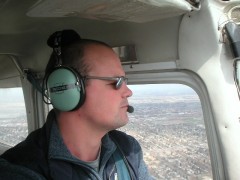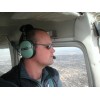This is wher you are introduced to the world of aviation and learn the basics of flight. You are initiated into the full range of aircraft maneuvers and navigation during air training exercises as well as learning flight theory, weather and other subjects in ground school. The Canadian Private Pilot Licence will allow you to carry passengers in light single-engine airplanes during daylight hours in good (VFR) weather conditions.
Admission Requirements
Transport Canada requires the candidate:
to be a minimum of 17 years of age. (16 years for Student Permit)
to hold a Category 3 medical. (If continuing on to a Commercial Licence a Category 1 medical should be obtained.)
to be a Canadian citizen, landed immigrant, or person lawfully admitted to Canada for the purpose of flight training
to have acquired a minimum of
40 hours ground training, and
45 hours of flight training broken down as follows:
minimum 17 hours dual instruction
minimum 12 hours solo practice
combination of dual and solo to attain flight test standards
Ground Training
Centennial has developed a continuous ground school system (download schedule in PDF) to allow students to start at any time for the Private Licence. The classes run every Tuesday and Thursday from 19:00 to 21:30. Though Transport Canada requires 40 hours, the ground school consists of 55 hours of formal instruction in the following subjects:
Aerodynamics and Theory of Flight
Flight Operations
Canadian Aviation Regulations
Meteorology
Navigation
Radio and Electronic Theory
Airframes, Engines and Systems
Flight Instruments
Licensing Requirements
Human Factors and Pilot Decision Making
Flight Training
Flight training consists of 5 phases:
Basic training to the first solo level. This is all dual (flying with your instructor) and is followed by three hours of solo practice.
Advanced flight training involves advanced techniques for forced approaches and specialty take-offs and landings (eg operating from soft or short fields).
Navigation involving dual and solo cross-country flights with no less than 3 hours dual and 5 hours solo.
An introduction to instrument flying.
Preparation for the flight test: dual and solo as required by the student to reach a level of proficiency necessary to pass the flight test.





